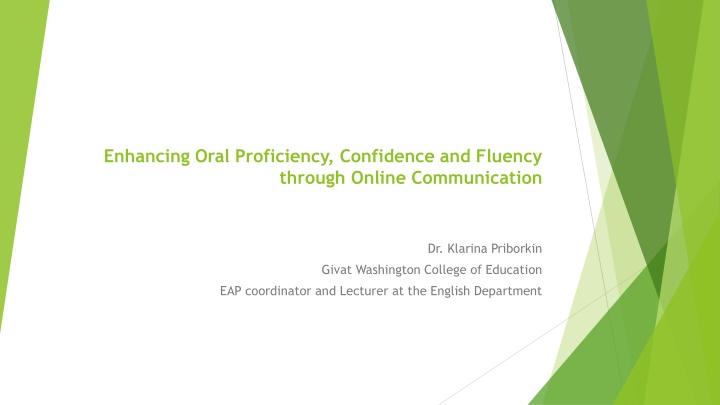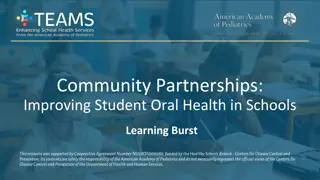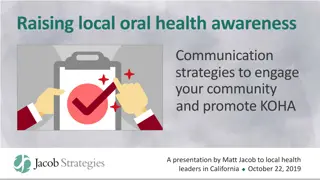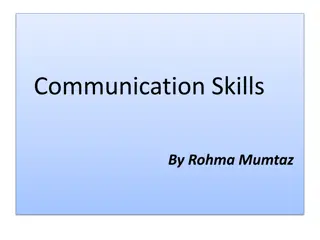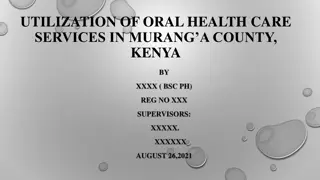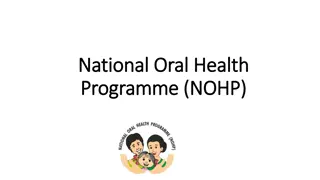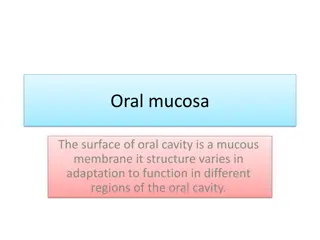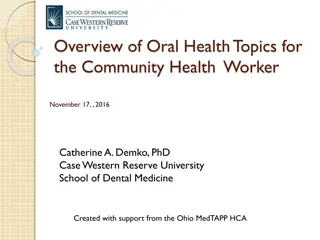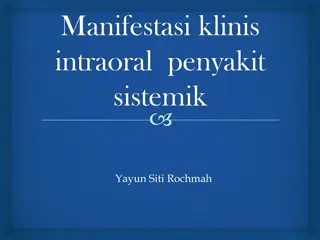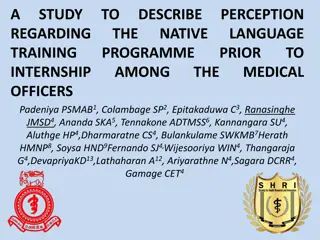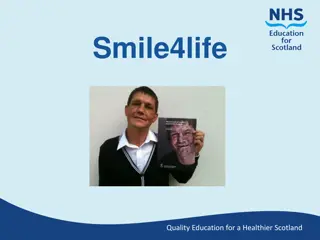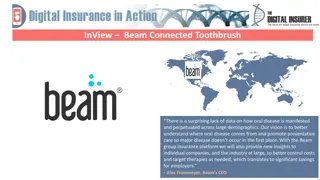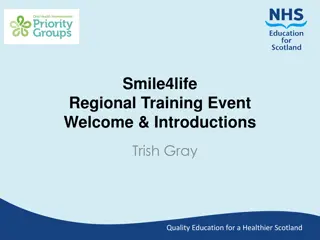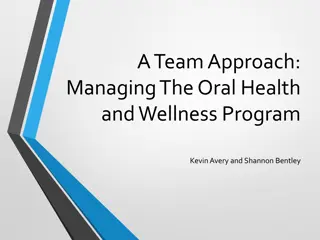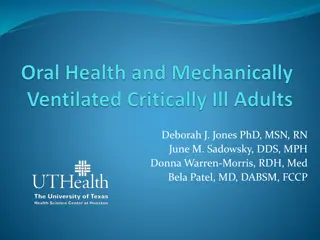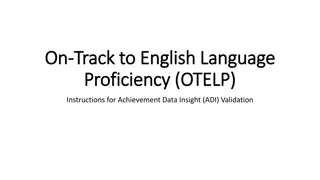Online Communication for Enhanced Oral Proficiency
Givat Washington College of Education EAP coordinator, Dr. Klarina Priborkin, emphasizes enhancing oral proficiency, confidence, and fluency through online communication. As a lecturer in the English Department, she provides valuable insights and strategies to improve language skills effectively in a virtual setting.
Download Presentation

Please find below an Image/Link to download the presentation.
The content on the website is provided AS IS for your information and personal use only. It may not be sold, licensed, or shared on other websites without obtaining consent from the author.If you encounter any issues during the download, it is possible that the publisher has removed the file from their server.
You are allowed to download the files provided on this website for personal or commercial use, subject to the condition that they are used lawfully. All files are the property of their respective owners.
The content on the website is provided AS IS for your information and personal use only. It may not be sold, licensed, or shared on other websites without obtaining consent from the author.
E N D
Presentation Transcript
Enhancing Oral Proficiency, Confidence and Fluency through Online Communication Dr. Klarina Priborkin Givat Washington College of Education EAP coordinator and Lecturer at the English Department
Israel Connect Project first and second year comparison 1styear of the program 6 (2 English Majors) (4 Physical Ed.) First Year Students EAP level Advanced 2 Skype (one-on-one) 2ndyear 7 (First and Second Year English majors and some are still EAP students) EAP level Advanced 1+2 Zoom (one volunteer+2 students) Home Students choose the day and time when they are able to connect 1- due to tight personal schedule Participants Software used Location Time College All the students had to connect at the same time right after EAP class 2- due to technical problems Students who left the program
Opening Questionnaire What are your expectations from the project? Why have you decided to join the project? What are your strengths and your weaknesses as a learner of English? Which skills would you like to improve? Do you expect to develop a personal connection with the volunteer? Are you interested in sharing personal details about your life and listen to volunteer speaking about his or her family, hobbies, children and grandchildren?
Answers to the preliminary questionnaire 1-Most students expected to improve their oral proficiency, confidence, vocabulary, grammar and fluency. 2- Joining this project is like jumping into the deep water. When I first decided to participate in this program I had mixed feelings. On the one hand, I was afraid to make mistakes in front of the native speaker and that we won't have chemistry between us, on the other hand, it's a great opportunity to meet other interesting people and it also can also enrich my world knowledge and expand my vocabulary (Maya). 3-Most students answered that their main weakness is speaking English fluently and confidently. A student with dyslexia making mistakes while reading out loud. 4-All the students expressed the willingness to share personal details about their own lives while learning about different cultures and speaking to new people.
Unedited entries from students projects that focus on the benefits of language learning This project is a wonderful and essential initiative. In my opinion, this is the best way to learn English. When you get into a situation when you have to speak English, this is a useful tool. When you find yourself in the United States, you will see that over time you will get comfortable with the language and you'll be able to speak very well. Even though English is not their first language, students will become more fluent. Students in high school that study English several hours a week for a few years are not able to speak fluent English. The same goes for students in academic studies. That is why I was so happy when I got the opportunity to join this project and receive a volunteer who does not understand a word in Hebrew, which forces me to speak English with him. He would agree to devote an entire hour just to help me improve my English skills.
Research that supports language learning through telecollaboration Real-life exposure and immersion in the target language enhances effective and meaningful learning by increasing proficiency, confidence and fluency (Kelm, 1996; Oller, 1993; Brammerts 1996; Warschauer 1997). Telecollaboration is an effective tool to encourage not only the practice of language skills, but also to raise intercultural awareness, enhance collaborative learning practices and increase learner motivation by providing opportunities for authentic language use through the activity of online task collaboration (Waldman, Harel, Schwab 180).
Benefits of inter-generational connection according to research According to Erica Johnson s Intergenerational telecollaboration: what risks for what rewards? Seniors are ideal partners [for young learners collaboration] because they have more time to devote to their communities (Holtgrave, Norrick, Tuefel &Gilbert, 2014). Intergenerational projects also allow students to work through many pre- existing attitudes about seniors (Jones 2011 in Johnson, 100). While in the beginning of the projects students were not sure they ll be able to find common topics for discussion with the seniors, in the end of the project they report that they always found topics to discuss despite their age difference and even were able to ask seniors for life advice.
Excerpts from Students Projects that show inter-generational connection Omer- Today I met an amazing woman named Sue. She is a psychologist and a social worker Sue has 3 children and grandchildren. We discussed the situation of the Jews in the world, and the situation between Israel and the Palestinians. We also spoke about Israel's unity in the country and the world, and shared personal stories about our families. We spoke about the local soccer teams and how everything is possible when you believe in yourself. Finally, we wished happy Purim to each other.
Naomi another excerpt In our first conversation we immediately felt a connection between us. At first I thought I joined the project to improve my English but with Sheina I ve got another value to know her and the different culture she came from. Sheina is a very nice woman, kind and warm person. I asked her if she preferred to talk about the articles about Ein Gedi / Eilat, but our conversation was very close and open. She began telling me her interesting life story already in our first conversation. Sheina was born in Toronto Canada and married at the age of 21. When she met her husband she moved to Canada where they live to this day. She also told me about the culture and weather in Canada. They suffer very much from the cold in winter, so they travel to Florida every winter.
Yael Yael also comments on her relationships with the volunteer: a wonderful woman around the age of eighty. The conversation was easy and pleasant. She took interest in my life. She asked me where I live, and what am I doing or studying, what is my husband is doing. She was also interested in, how many siblings I have and, where do my parents work and so on. (There were many emotional and personal entries which I have not included here to maintain the participants privacy.
Intergenerational connection benefits reported by my students Meaningful inter-cultural and inter-generational connections with the volunteers. Students emotional investment in the project made their language learning experience much more memorable and effective. Experience in connecting with an elderly generation from a different country thus expanding their socio-cultural awareness As future teachers, our students are exposed to an alternative, hands-on teaching method that actively engages the students in real life interactions with people of different ages and backgrounds.
Potential risks in intergenerational telecollaboration projects According to Johnson, if seniors are hard of hearing or are not accustomed to speaking with foreigners since some of them will have a hard time understanding their accents (101). In our project we have experienced only one similar case with a volunteer during the first year of the project. She has left the project since the noise from the parallel conversations that were going on in the classroom bothered her. The problems of background noise currently don t exist because the students are working from home rather than in the same classroom. Seniors sometimes encounter technological difficulties, which can be very discouraging. In our case the volunteers receive the necessary guidance from the project s tech support, so there were no difficulties of this sort.
Conclusion students thank you letters Dear Israel Connect volunteers, I m really glad that I ve got the chance to be a part of this astounding project. I think it s important for everyone because it teaches English like no book can. It provides students who can t afford to fly abroad the opportunity to experience speaking English with native English speakers. Moreover, students who feel embarrassed speaking in English, may find it easier to practice by speaking with a single person. Thanks to this project, I got to know all kinds of people and heard about different lifestyles. In addition, after every session I summarize the conversation I had, as a result, my writing skills improved as well. Thank you for spending your free time helping me with my English! RD -Physical Education student
